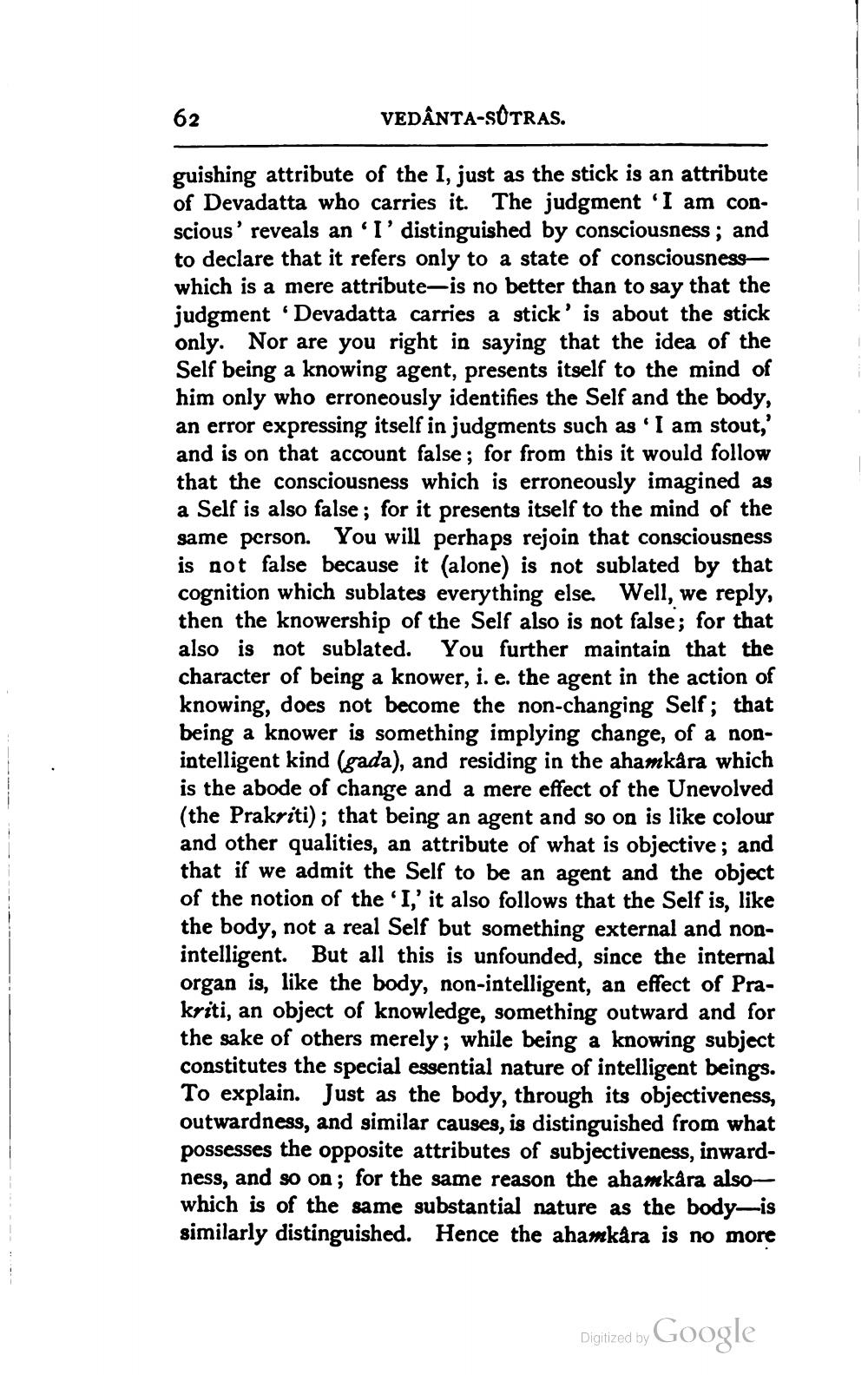________________
62
VEDÂNTA-SOTRAS.
guishing attribute of the I, just as the stick is an attribute of Devadatta who carries it. The judgment 'I am conscious' reveals an 'I' distinguished by consciousness; and to declare that it refers only to a state of consciousness which is a mere attribute-is no better than to say that the judgment Devadatta carries a stick' is about the stick only. Nor are you right in saying that the idea of the Self being a knowing agent, presents itself to the mind of him only who erroneously identifies the Self and the body, an error expressing itself in judgments such as I am stout,' and is on that account false; for from this it would follow that the consciousness which is erroneously imagined as a Self is also false ; for it presents itself to the mind of the same person. You will perhaps rejoin that consciousness is not false because it (alone) is not sublated by that cognition which sublates everything else. Well, we reply, then the knowership of the Self also is not false; for that also is not sublated. You further maintain that the character of being a knower, i.e. the agent in the action of knowing, does not become the non-changing Self; that being a knower is something implying change, of a nonintelligent kind (gada), and residing in the ahamkâra which is the abode of change and a mere effect of the Unevolved (the Prakriti); that being an agent and so on is like colour and other qualities, an attribute of what is objective; and that if we admit the Self to be an agent and the object of the notion of the 'I,' it also follows that the Self is, like the body, not a real Self but something external and nonintelligent. But all this is unfounded, since the internal organ is, like the body, non-intelligent, an effect of Prakriti, an object of knowledge, something outward and for the sake of others merely; while being a knowing subject constitutes the special essential nature of intelligent beings. To explain. Just as the body, through its objectiveness, outwardness, and similar causes, is distinguished from what possesses the opposite attributes of subjectiveness, inwardness, and so on; for the same reason the ahamkâra alsowhich is of the same substantial nature as the body-is similarly distinguished. Hence the ahamkara is no more
Digitized by
Digitized by Google




